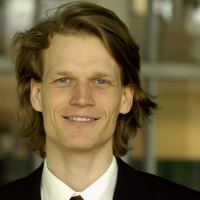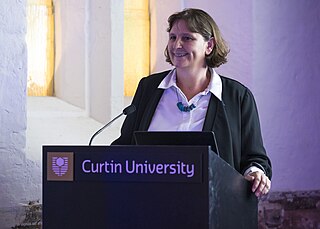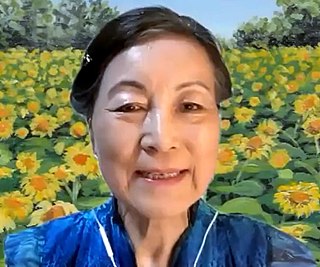The reputation or prestige of a social entity is an opinion about that entity – typically developed as a result of social evaluation on a set of criteria, such as behavior or performance.

Corporate social responsibility (CSR) or corporate social impact is a form of international private business self-regulation which aims to contribute to societal goals of a philanthropic, activist, or charitable nature by engaging in, with, or supporting professional service volunteering through pro bono programs, community development, administering monetary grants to non-profit organizations for the public benefit, or to conduct ethically oriented business and investment practices. While once it was possible to describe CSR as an internal organizational policy or a corporate ethic strategy similar to what is now known today as Environmental, Social, Governance (ESG); that time has passed as various companies have pledged to go beyond that or have been mandated or incentivized by governments to have a better impact on the surrounding community. In addition national and international standards, laws, and business models have been developed to facilitate and incentivize this phenomenon. Various organizations have used their authority to push it beyond individual or even industry-wide initiatives. In contrast, it has been considered a form of corporate self-regulation for some time, over the last decade or so it has moved considerably from voluntary decisions at the level of individual organizations to mandatory schemes at regional, national, and international levels. Moreover, scholars and firms are using the term "creating shared value", an extension of corporate social responsibility, to explain ways of doing business in a socially responsible way while making profits.

Wanda J. Orlikowski is a US-based organizational theorist and Information Systems researcher, and the Alfred P. Sloan Professor of Information Technologies and Organization Studies at the MIT Sloan School of Management, Massachusetts Institute of Technology.
Robert Edward Freeman is an American philosopher and professor of business administration at the Darden School of the University of Virginia, particularly known for his work on stakeholder theory (1984) and on business ethics.
Entrepreneurship is the creation or extraction of economic value in ways that generally entail beyond the minimal amount of risk, and potentially involving values besides simply economic ones.
A corporate social entrepreneur (CSE) is someone who attempts to advance a social agenda in addition to a formal job role as part of a corporation. It is possible for CSEs to work in organizational contexts that are favourable to corporate social responsibility (CSR). CSEs focus on developing both social capital and economic capital, and their formal job role may not always align with corporate social responsibility. A person in a non-executive or managerial position can still be considered a CSE.

Alfred Allen Marcus is an American author and the Edson Spencer Professor of Strategy and Technology Leadership at the Carlson School of Management, University of Minnesota and the Technological Leadership Institute. He has worked as a consultant with companies such as 3M, Corning Inc., Xcel Energy, Medtronic, General Mills, and IBM and has also taught as a visiting professor at Technion, INCAE, BI Norwegian Business School, Fordham University, and MIT.

Shaker A. Zahra is the Robert E. Buuck Chair of Entrepreneurship and professor of strategy and entrepreneurship, Carlson School of Management, University of Minnesota. He is also the academic director of the Gary S. Holmes Entrepreneurship Center.
Peter Mark Pruzan is a Danish organizational theorist, management consultant, and Emeritus Professor of Systems Science at the Department of Management, Politics & Philosophy at the Copenhagen Business School (CBS) in Denmark. Pruzan is known for work on corporate governance and values-based leadership. He became a naturalized Danish citizen in 1973.

Sven Constantin Voelpel is a German organizational theorist and Professor of Business Administration at the School of Humanities and Social Sciences at Jacobs University in Bremen, Germany, known for his work in the field of strategic management, business models and knowledge management.

Herman Aguinis is a researcher, business professor, and author. He is the Avram Tucker Distinguished Scholar and Professor of Management at the George Washington University School of Business in Washington, D.C. He has been ranked among the world's top 100 most influential economics and business researchers in the world every year since 2018. He served as President of the Academy of Management (AOM), and has been inducted into The PhD Project Hall of Fame. Prior to moving to Washington D.C. in 2016, he was the John F. Mee Chair of Management and the Founding Director of the Institute for Global Organizational Effectiveness in the Kelley School of Business at Indiana University.
Robert Aaron Gordon was an American economist. He was a professor of economics at the University of California, Berkeley from 1938 to 1976. In 1975, he served as president of the American Economic Association.
Ewan Balfour Ferlie FBA is a British social scientist, whose work has made an important contribution to the academic literature on public sector management. He has published widely and internationally on narratives of public management reform and also on questions of organizational change in public services organizations, especially in health care and higher education. His well-cited works include co-authored monographs, Oxford University Press handbooks and peer reviewed articles. He is currently professor of public services management at King's College London.

Joanne Bridgett Ciulla is an American philosopher. She is a pioneer in the field of leadership ethics as well as teaching and publishing on business Ethics. She is currently a professor at the Rutgers Business School - Newark and New Brunswick and is the director of the Institute for Ethical Leadership. She has received several awards for her contributions to leadership studies and business ethics.
Phillip Phan is Alonzo and Virginia Decker Professor of Strategy and Entrepreneurship at the Carey Business School, Johns Hopkins University, with expertise in the areas of strategy and entrepreneurship. Phan's research examines corporate governance, entrepreneurship and technology transfer, regional economic development, and innovation management in healthcare. He is currently Editor-in-Chief of Academy of Management Perspectives.

Sharon Kaye Parker is an Australian academic and John Curtin Distinguished Professor in organisational behaviour at Curtin University. Parker is best known for her research in the field of work design, as well as other topics such as proactivity, mental health and job performance. She is a Fellow of the Academy of the Social Sciences in Australia, a Fellow of the Society for Industrial and Organisational Psychology, and in 2016 received the Kathleen Fitzpatrick Australian Laureate Fellowship. Parker's research has been cited over 28,000 times internationally and she has been recognised as one of the world's most influential scientists in the 2019 Highly Cited Researchers list by Clarivate, as well as the 2020 World's Top 2% Scientists list by Stanford University.
Mark A. Huselid is a university professor, workforce management specialist, book author, and business consultant. He is the Distinguished Professor of Workforce Analytics at D'Amore-McKim School of Business, Northeastern University. He has authored research papers and books regarded as seminal to establishing a strategic link between human resource management and business performance.

Anne S. Tsui is a professor of International management, who holds the positions of Motorola Professor Emerita of International Management at Arizona State University, distinguished adjunct professor at the University of Notre Dame, and distinguished visiting professor at Peking University and Fudan University, China.
Thomas J. Roulet is a French-British social scientist, management thinker and professor at the University of Cambridge where he holds the Chair of Organisational Sociology and Leadership. He has advanced the concept of negative social evaluations and is known for his research on wellbeing in the context of remote work. He is a Faculty at the Judge Business School, and a Fellow of King's College Cambridge.
Kimberly Ann Eddleston is the Schulze Distinguished Professorof Entrepreneurship, and Professor of Entrepreneurship & Innovation at D’Amore-McKim School of Business, Northeastern University. Her expertise on subjects related to family business management and small business management is quoted in US sources. She has received many academic awards by US institutions and is a leading editor of several academic journals.